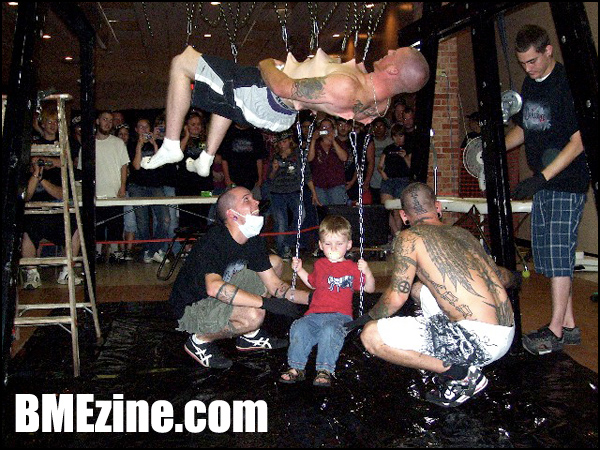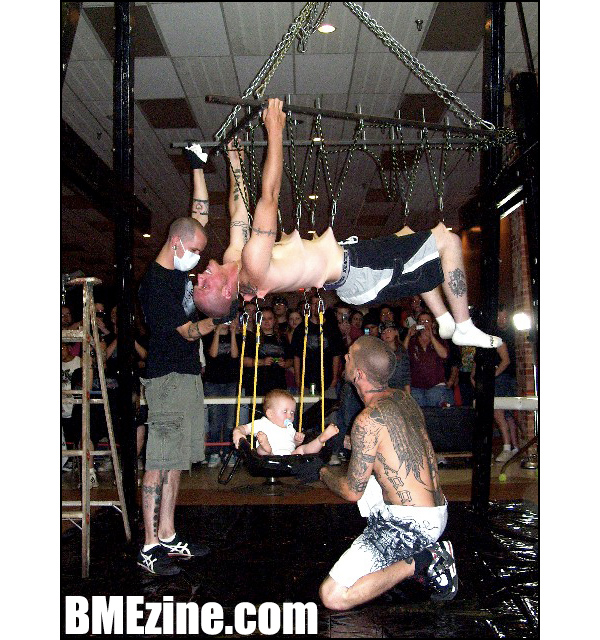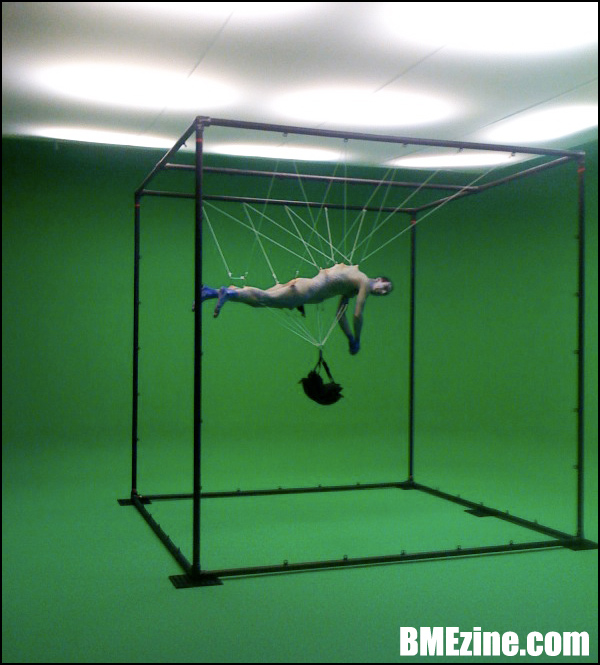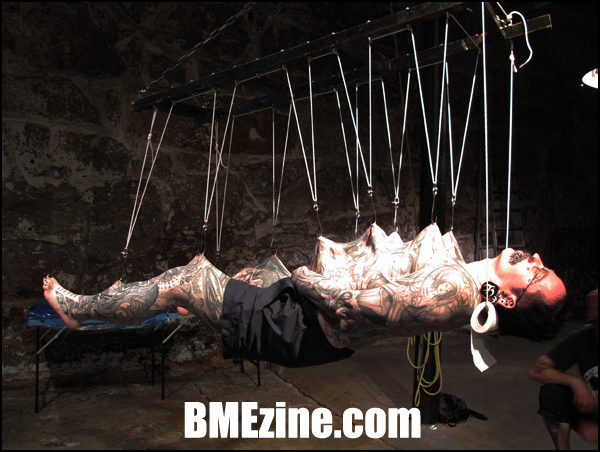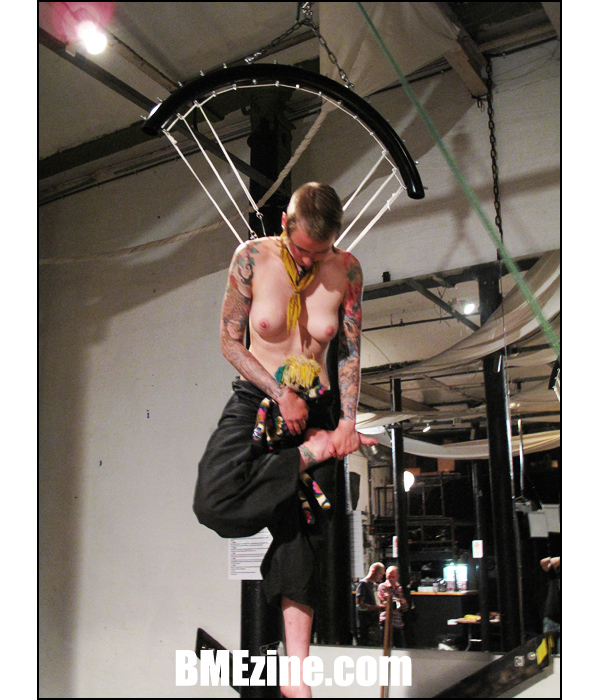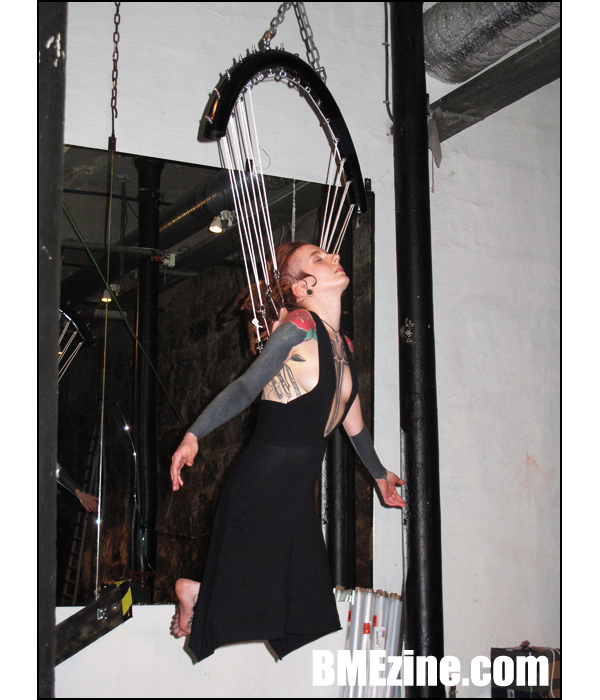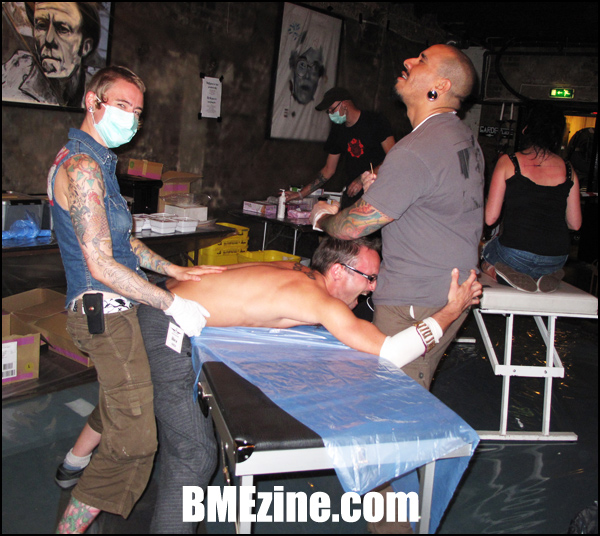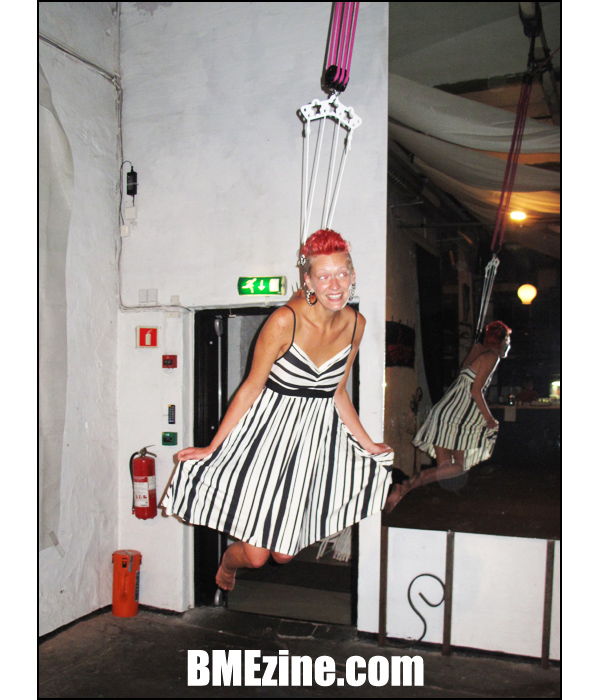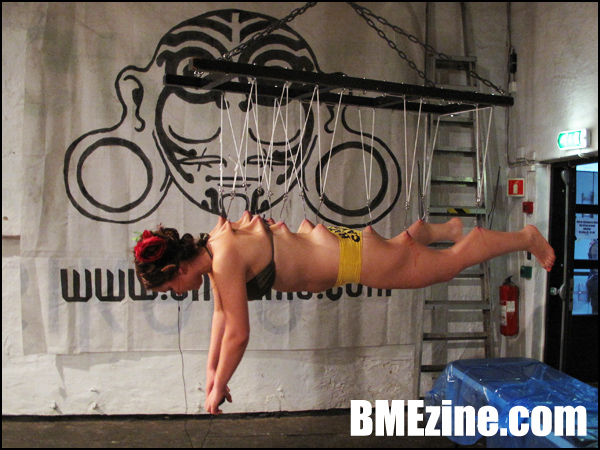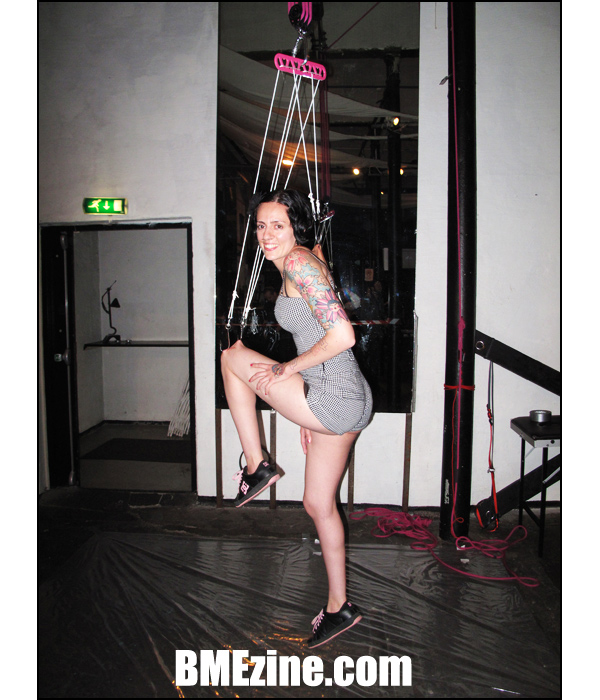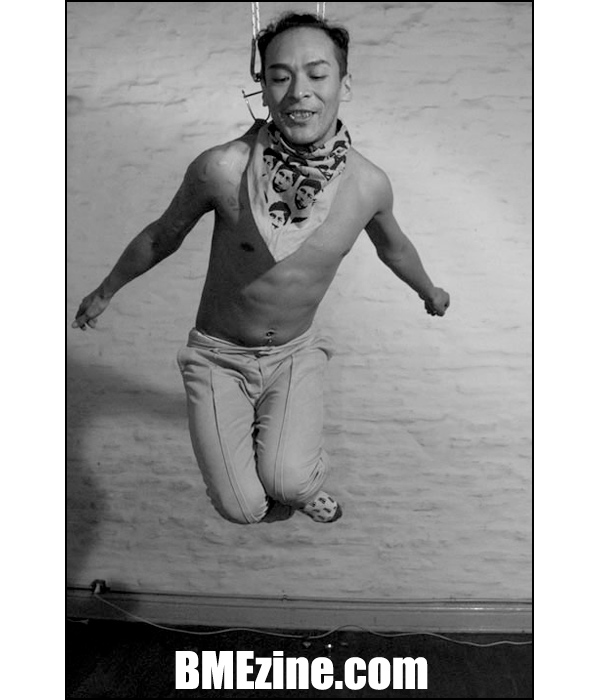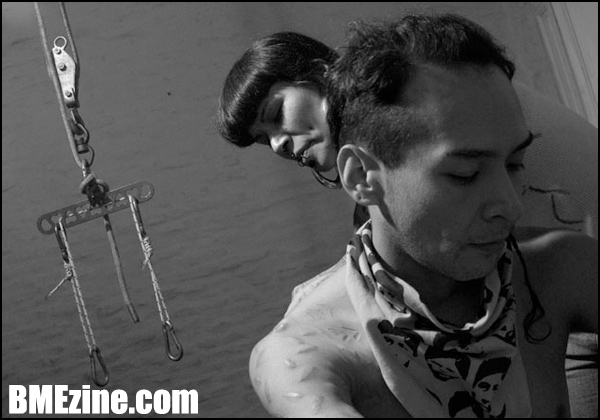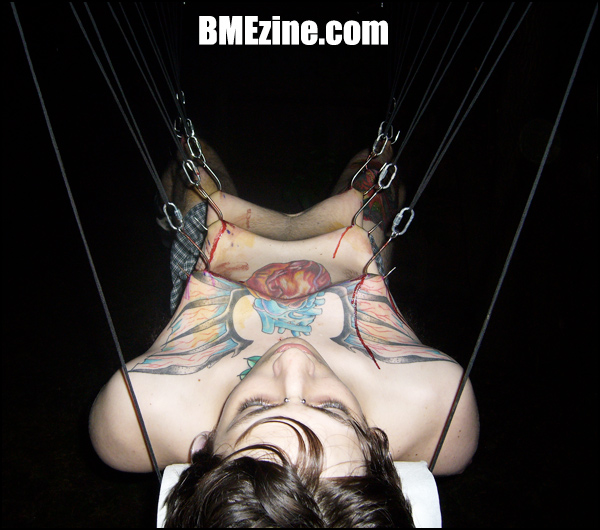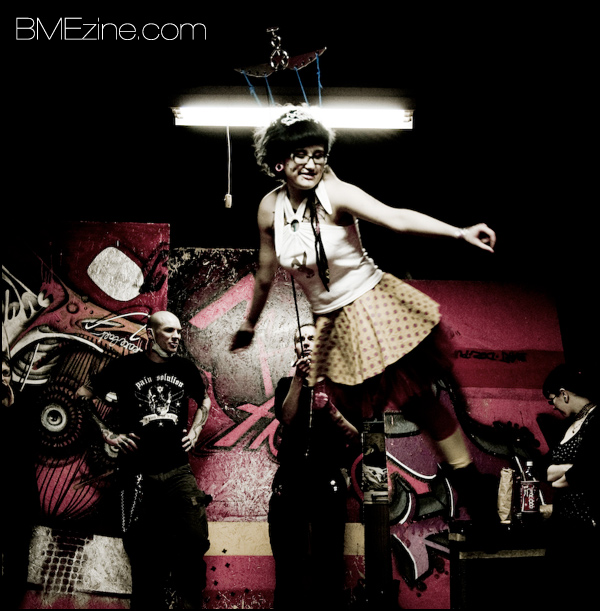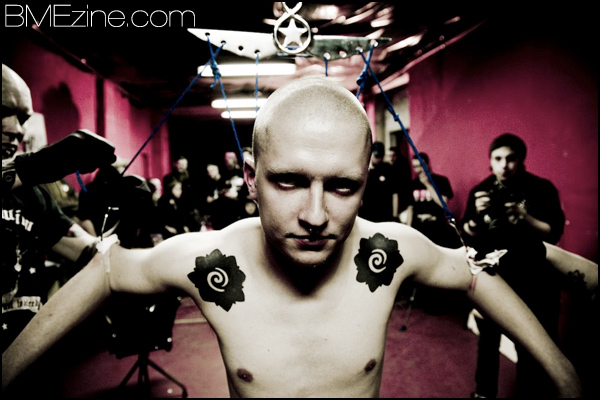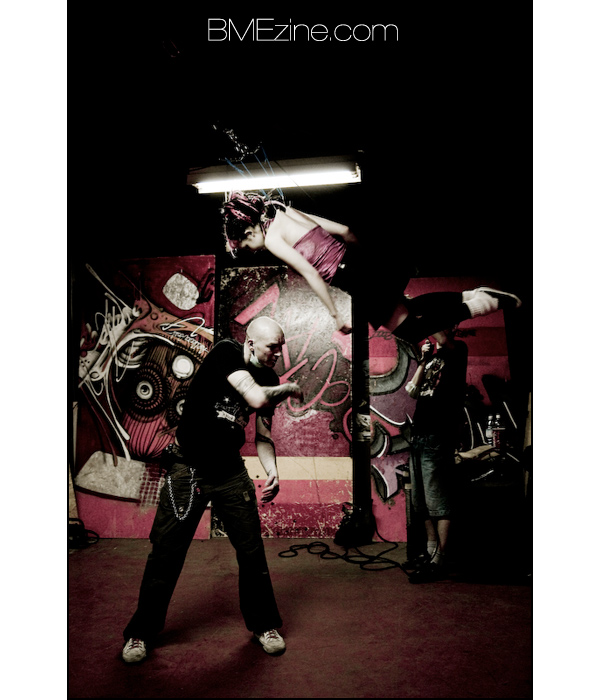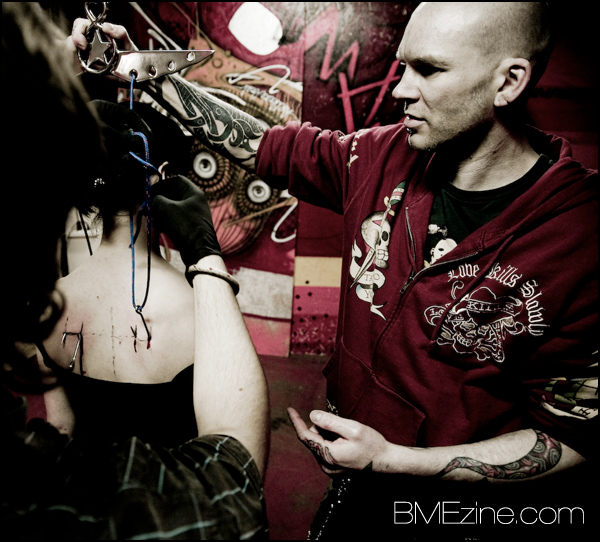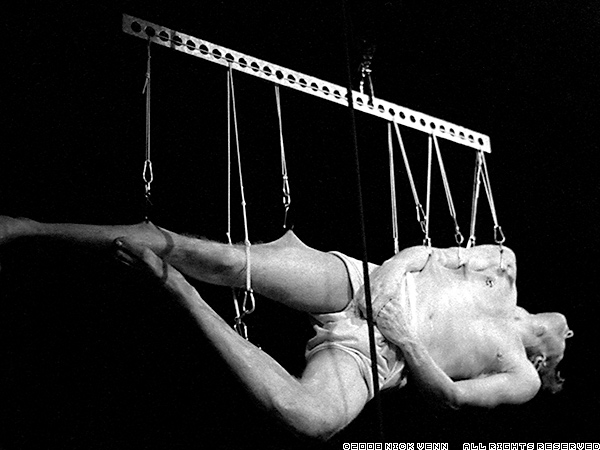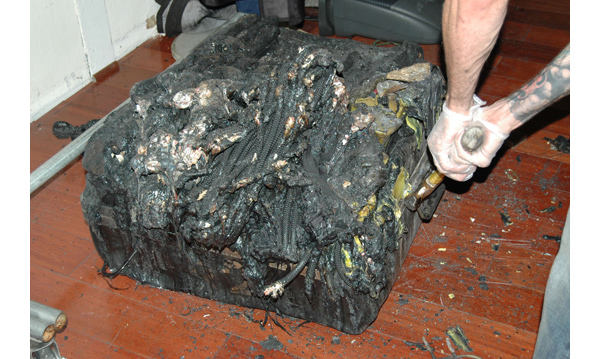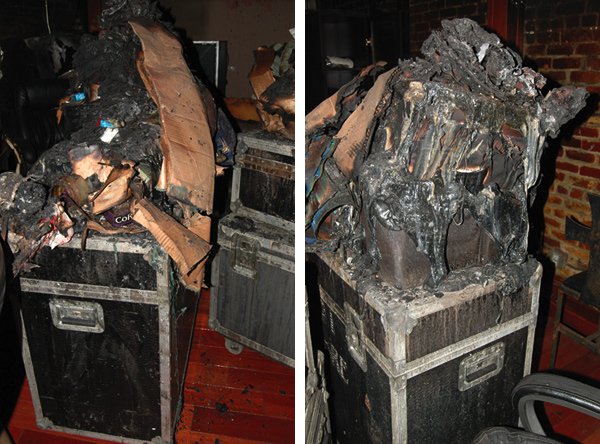Alexander Trowell is a body piercer and student nurse from Southport, U.K. He’ll be filing reports for us from the Oslo SusCon. Keep checking ModBlog for updates!
To give a better insight into the 2009 Oslo SusCon, I thought an interview with organizers Christiane and Havve might be interesting.
Havve Fjell is a freak-show artist/fakir performing under the name Pain Solution both in Norway and internationally. He runs the Fakir Academy in Oslo. Christiane Lofblad is a body piercer in Oslo, running the successful Pinpoint Piercing studio. Together, they are responsible for the Wings of Desire organization, which arranges the Oslo SusCon and smaller suspension events throughout the year.
Alexander Trowell: This is the eighth incarnation of the Oslo suspension convention. Can you briefly tell BME readers how the convention has evolved over that time?
Wings of Desire: Well, the first year we aimed for too much. We were in a big warehouse with no sinks, and partied every night. There were performers and bands and things like that, and although the suspensions were supposed to be the main part of it, they weren’t. We soon learned that we needed to keep it more to the point, focusing less on the unimportant stuff. Then the second year, we had no crew and trained everyone who participated. What we didn’t think of was that some people didn’t want a workshop, they just wanted to hang, so from there we changed. The third year, we had our first lectures, courtesy of Allen Falkner. We have grown in that direction since, accommodating guest speakers, and having a dedicated crew to handle the action.
AT: The convention sees members from all over the world and seems to be widely recognized among much of the body modification community. I know from personal experience that this is due to hard work and good organizing skills, but has it come as a surprise at all how popular it has become?
WOD: It has been something of a surprise, but we’re good [laughs]. We both have friends, within both the body mod industry and among performers, so it has kind of grown from that. Plus, of course, Allen Falkner helped spread the word.
AT: I have a feeling this isn’t going to be the last Oslo SusCon. Do you feel that the level it’s at now is good, or do you want more/fewer people for future events?
WOD: From last year, we decided not to increase it much. There’s a really good atmosphere at the Oslo SusCons now, and we get a lot of positive remarks in that regard; we don’t want to lose that. The way the crew and team leader system works means all suspendees are followed by a set of crew members, which we have also been told is a nice way of doing it. That connection between crew and participant could be difficult to maintain if the convention grew too big.
AT: Obviously you guys travel to other conventions and body mod-related events around the world. How do you feel this has affected your own practices, and do you consider it reciprocal—do you find you get to influence other suspension groups’ practices?
WOD: Well, we do learn a lot of little tweaks from other people, and we are able to help others out too, so yes. There is a kind of social consensus to share good methods and technique, and the community seems good at that. Most people who run groups seem to do so for the love of it, as opposed to financial motivation, so most people want to expand and share their knowledge base.
AT: You guys appear to have excellent communication with local government, to the point where the local council provides you with some funding. I think it’s safe to say that this is quite rare in this subculture. How has this “partnership” formed, and what advice would you give to other suspension groups that want to function more dynamically with local government?
WOD: We are really lucky. We are really lucky, because legislation is quite relaxed and open in Norway. Scarification, subdermal implants and things like that aren’t banned, and it’s relatively easy to communicate with the council. We have the approval of the local council in Oslo to do this event, so that’s cool—they’ve inspected our protocol and are happy. In other countries, the situation is completely different, so if you don’t think you’ll get approval for suspension events, don’t ask [laughs]. Funding-wise, it’s very much intertwined with networking again. Havve has ties to cultural and art agencies, so that’s where the funding comes from.
AT: The Oslo SusCon sees well-established practitioners from Europe and America function as team leaders. It has piercers from all over the world that all seem to work very well together, and the convention no longer has the workshop feel it had in the beginning. Is this a result of wanting to include more people and suspensions, and do you feel this is the direction you want to keep moving in?
WOD: Well, from the beginning, we have communicated with piercers internationally because the “scene” was quite small to begin with and not that many people were available locally. The way it’s run now, with experienced team leaders in charge, is very good, and when we do workshops, we do smaller events. We still try to teach our crew continuously of course—it’s an evolving field. But yes, we do plan to continue in the same way forwards, since the recipe works well.
AT: Thank you very much for the time guys, I look forwards to coming back next year.
That’s all folks, now it’s time to start partying. Pictures will be on the way soon. Until then, I spy with my little eye, a branding iron…
– Alex
